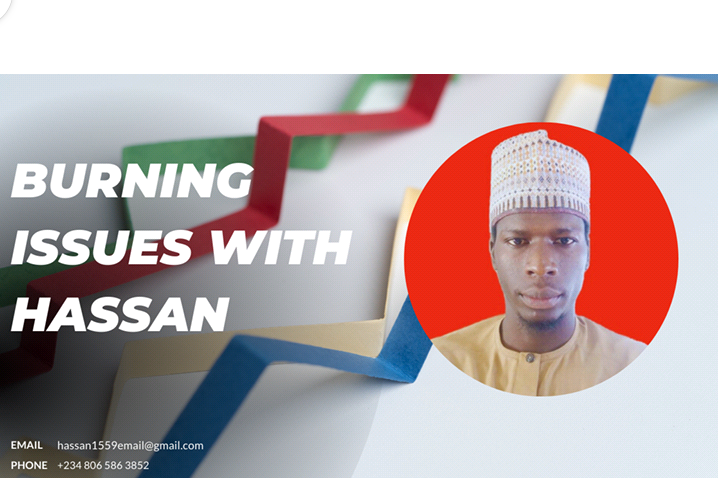In recent years, the resurgence of Boko Haram and its affiliate, the Islamic State West Africa Province (ISWAP), has raised significant concerns in Northern Nigeria.
This terrorist organization, which appeared to be significantly weakened following intense military operations in 2015, has re-emerged with increasing strength and sophistication, carrying out more deadly attacks on civilians and security forces.
This situation has left many Nigerians questioning how and why these groups have regained power despite repeated government promises to eradicate them.
Boko Haram, which began its insurgency in 2009, has caused widespread devastation, particularly in Nigeria’s northeastern region.
By 2015, under the administration of former President Muhammadu Buhari, there were significant military victories, and the group was declared to have been “technically defeated.” Many areas previously under their control were recaptured by the Nigerian Army, and there was hope for recovery and stability in the region.
However, over time, Boko Haram, alongside its splinter group ISWAP, has regained momentum.
The terrorists are now better armed, with advanced weaponry and logistics, enabling them to launch sophisticated attacks on civilians and security personnel. This resurgence has left citizens asking critical questions:
Are Boko Haram and ISWAP stronger than the Nigerian government?
How do these terrorists operate freely and target security forces with such precision?
Where are they obtaining their weapons and support?
Is the Nigerian government or the security apparatus to blame for this persistent threat?
The resurgence of Boko Haram and ISWAP can be traced to several systemic issues, including governance, corruption, and the influence of politics, Inadequate Leadership and Corruption.
The fight against terrorism has been hampered by bad leadership, corruption, and selfish political interests. Despite repeated promises by successive administrations, the insurgency persists.
The lack of transparency in defense spending, alongside allegations of embezzlement of funds meant for military operations, has weakened the country’s ability to effectively combat terrorism.
Regional and International Factors, the Nigerian military has made significant efforts to curb the activities of Boko Haram and ISWAP.
However, the group continues to receive support through transnational networks. Many suspect that these terrorists have access to weapons from foreign sources, possibly facilitated through weak borders and arms smuggling.
The role of neighboring countries in either supporting or turning a blind eye to the activities of these groups has also been questioned.
For instance, the President of Niger Republic recently alleged that external forces might be aiding these terrorists, a claim that aligns with the growing sophistication of their weaponry.
Challenges Facing the Nigerian Military, despite their sacrifices, Nigerian security forces face numerous challenges, including:
Inadequate funding and equipment, Low morale due to delayed salaries and welfare issues.
Insufficient intelligence and coordination among security agencies.
These obstacles limit the effectiveness of counterterrorism operations, leaving communities vulnerable.
Political Undercurrents and the Role of Corruption, Politics plays a significant role in the inability to decisively defeat Boko Haram and ISWAP.
Accusations of political figures benefiting from the ongoing insurgency, either financially or strategically, have further complicated the situation. This has led to a lack of unified resolve to address the crisis comprehensively.
The Future of the Fight Against Terrorism, the current administration, led by President Bola Ahmed Tinubu, has two years left to deliver on its promise to eradicate terrorism. However, the task is daunting.
Without addressing the root causes, such as corruption, poor leadership, and regional instability, the situation may continue to deteriorate.
Who Should Be Held Accountable ? the persistence of Boko Haram and ISWAP is a shared failure that spans multiple administrations and involves various stakeholders.
The Federal Government bears responsibility for not addressing the systemic issues that fuel insurgency.
Security Agencies must improve coordination, intelligence gathering, and accountability within their ranks.
Regional and International Partners must work collaboratively to cut off the sources of funding and arms to these groups.
To achieve lasting peace, Nigeria must adopt a multi-faceted approach, By Strengthen Military Capacity, Provide adequate funding, training, and equipment for security forces.
Address Root Causes, Invest in education, job creation, and social programs to counter radicalization.
Enhance Regional Cooperation, Work closely with neighboring countries to secure borders and disrupt transnational terrorist networks.
Combat corruption, ensure transparency and accountability in defense spending and government operations.
The fight against Boko Haram and ISWAP is far from over. While the Nigerian Army continues to make sacrifices, systemic failures and political interference have allowed these groups to regain strength.
Addressing these challenges requires bold leadership, international cooperation, and a unified resolve to prioritize the safety and well-being of Nigerian citizens.
Without these, the current administration risks leaving the next generation to face an even greater threat from terrorism.



